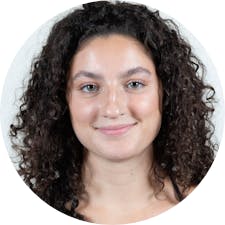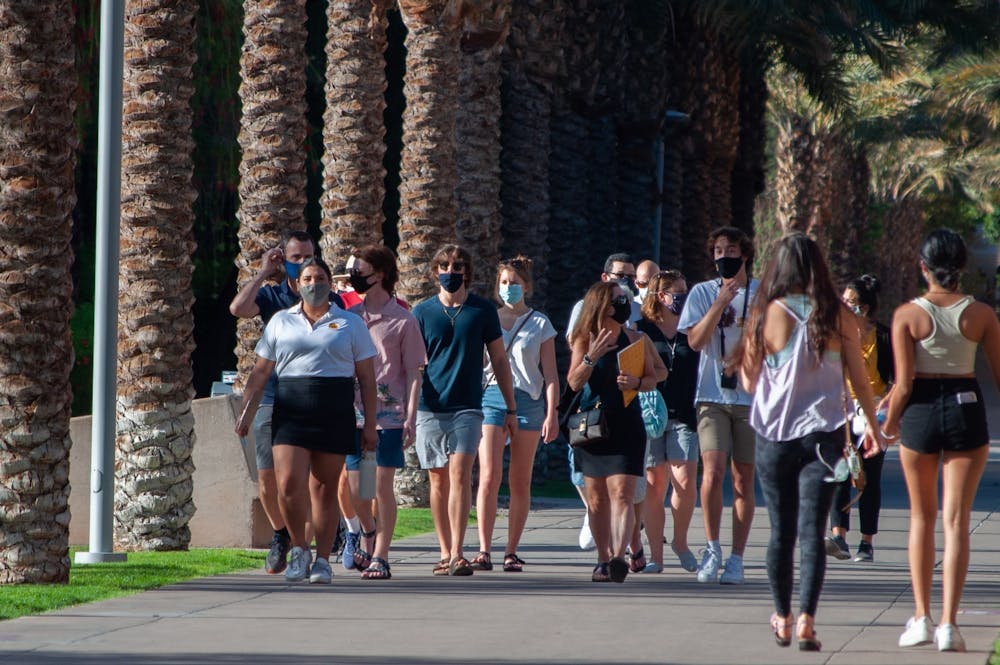New academic programs and schools are brought to ASU each year and must go through an approval process to become established at the University.
The process is composed of eight steps known as the Proposal to Establish process. Proposals for new programs and schools go through approval at the Dean's Office, Office of the University Provost, Curriculum and Academic Programs Committee and the University Senate.
Anne Jones, vice provost for undergraduate education, said in an email the Proposal to Establish process is used to create an "alignment of degree offerings strategically with current scholarship, student goals, and our charter and design aspirations."
At the Dean's Office, the proposer must submit all information about the program they'd like to establish, make changes to, or disestablish, Jones said in an email.
After the information for potential programs is gathered, through the first three steps of approval, it is sent to the Office of the University Provost. Once reviewed by the provost, initiatives go through further review by curriculum committees. At any step of the process, programs can be tabled or sent back for more clarification and reviewed at a later date.
The Curriculum and Academic Programs Committee is comprised of an elected member from each of college within the University. CAPC is specifically for policy-forming and advising proposals and policies.
Jeffery Kennedy, associate professor in the School of Humanities, Arts and Cultural Studies and member of CAPC, said the committee is a "final stop before a new program, school or anything" is approved.
CAPC has monthly meetings where it reviews new programs, changes to programs to ensure it is not duplicating areas of study in existing colleges, Kennedy said.
While many academic programs are approved by CAPC, there are programs that get disestablished for a "lack of enrollment or interest or a change in that field," Kennedy said. Establishing new programs and disestablishing programs guarantees that knowledge is never obsolete at the University.
Newly opened School of Ocean Futures was proposed by Peter Schlosser, vice president and vice provost of the Global Futures Initiative at ASU.
The proposal was approved in August and students will be able to enroll in Fall 2024. In the meantime, the college will bring "together all the faculty researching and teachings about the oceans" to develop both undergraduate and graduate programs, said Susanna Neuer, the director and a professor at The School of Ocean Futures.
The proposal and approval of the school comes at a time when it is very necessary to "acknowledge the importance of the oceans," Neuer said.
Neuer said the school is about the "science of studying the ocean and from different disciplinary perspectives," but that it is "greater than that because we have partnerships in different places that allow us to really look at the impact of the school for society."
Although it might seem ironic to have a school based around oceans at a university located in the middle of the desert, the school will be offered in three locations, Tempe, Bermuda and Hawaii. The school will be integrating "the experiential part of studying the oceans by going to one of our ocean locations," into their programs, Neuer said.
READ MORE: ASU shark expert is teaching people how to save his favorite animals
Yet, Neuer said Arizona is not all that disconnected from the oceans because "there was very diverse work" to be done, through ocean or marine labs or satellite observations.
Binil Starly, school director and professor within the School of Manufacturing Systems and Networks, which opened last August, said the school offers a bachelor's and master's degree in manufacturing engineering and a doctorate in systems engineering.
Located at the Polytechnic campus, the purpose of creating the new school "is to set up new programs, new workforce development programs that can cater to even students who have engineers who are graduating, they're working and they want to upgrade their skills," Starly said.
Multiple new degree programs are now also offered starting in Fall 2022.
The College of Health Solutions now offers a master's of science in genetic counseling.
Katherine Hunt Brendish, a clinical professor and director of the genetic counseling program, said the program entails an understanding of "the medical science behind the genetic diseases, the technology to diagnose the disorder, and then help patients integrate that information psychologically into their families."
The New College of Interdisciplinary Arts and Sciences has a new master's of in interdisciplinary studies. The program is about wanting "to learn how to integrate knowledge from multiple disciplines."
"Interdisciplinarity is a methodology. It's a way of working," Kennedy said.
The New College also offers a bachelor's in disability studies. Patrick Bixby, an associate professor of English and a faculty lead for disability studies, said the program not only "gives students a better understanding of what it means to be disabled in our society, but to prepare them for careers in advocacy and policy making."
Edited by Jasmine Kabiri, Piper Hansen and Kristen Apolline Castillo.
Reach the reporter at clegallo@asu.edu and follow @claire_legallo on Twitter
Like The State Press on Facebook and follow @statepress on Twitter.

Claire Le Gallo is a reporter for the Community and Culture desk at The State Press. She is a sophomore majoring in Journalism and Anthropology.




